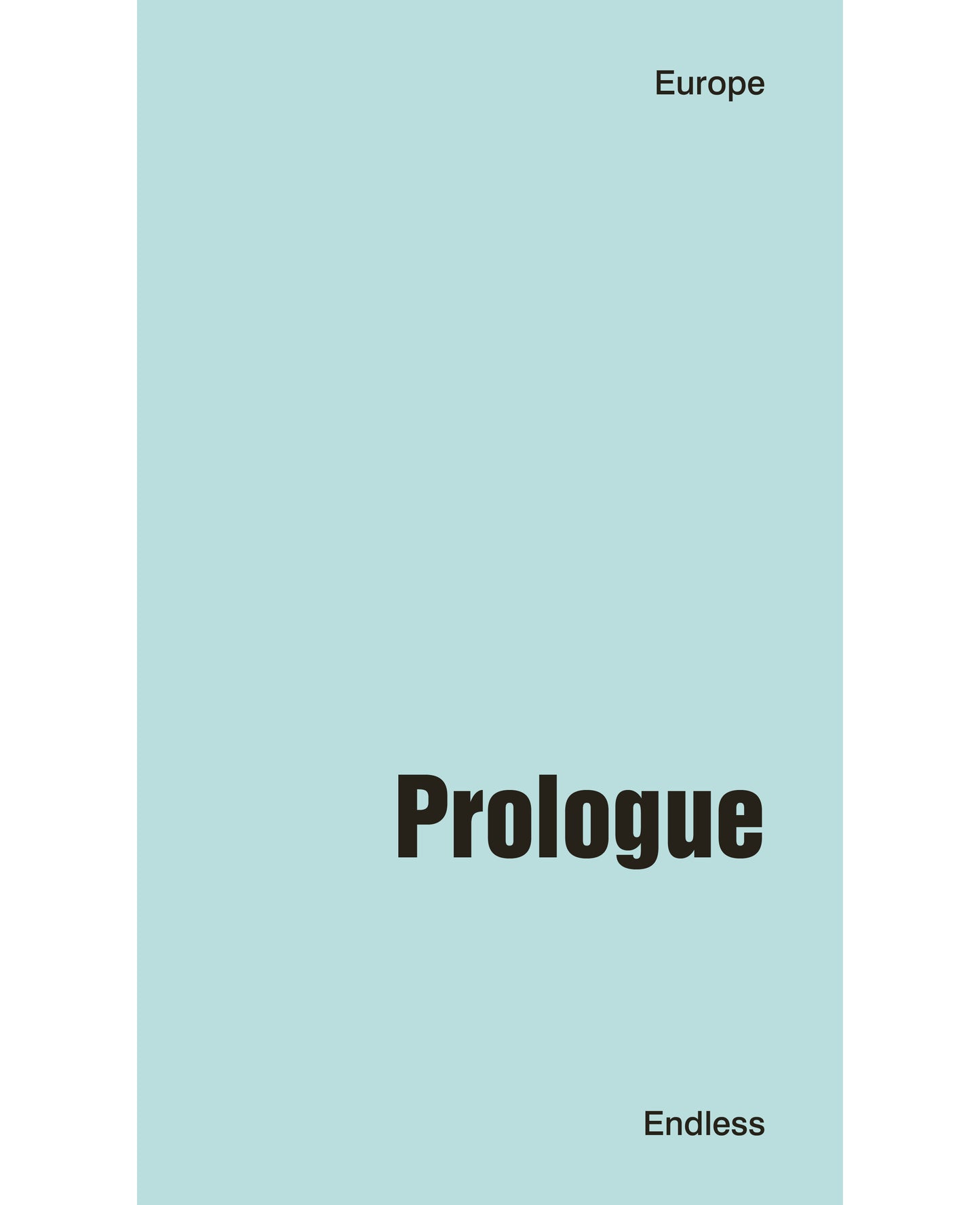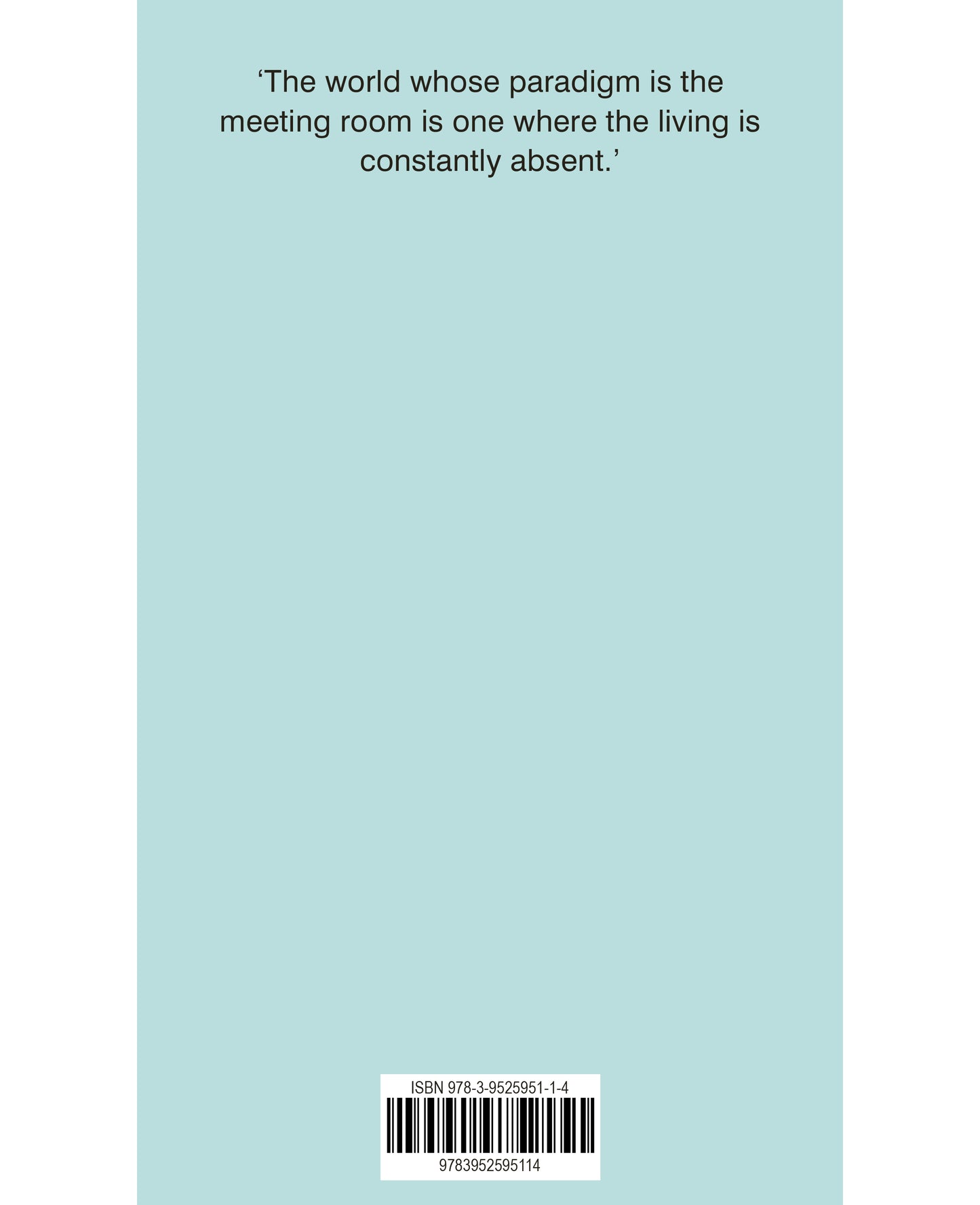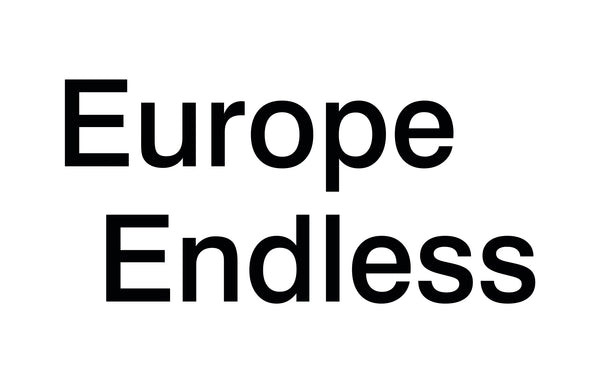Prologue (English)
Prologue (English)
Prologue of the Europe Endless series (N°01)
By Sándor Sabazios (pseudonym)
Brochure: 5,5 in x 3,2 in (14 cm x 8,2 cm)
41 pages, English language edition
Couldn't load pickup availability


Prologue (extract)
In my previous position at a company called Thatcher Dynamics, I often found myself attending one of those meetings. Those meetings where most participants feel that their presence is redundant or has served its purpose after a brief contribution. Out of eight attendees, perhaps two were truly indispensable, while the others mostly sat with a kind of resigned, passive readiness. My thoughts regularly wandered – what was this, what were these meetings about? My thoughts revolved around the culture of the business world, consulting and creative industries, client relationships, internal communication and competition, reports, forecasts, and estimates. I began to jot down critical notes in the notebook that the company had given me. Honestly, I was never quite sure whether the others realized I was scribbling my own stuff or if it gave the outward appearance of being attentive and interested. Nevertheless, no skeptical remark ever dropped. I wrote down keywords, sketched diagrams or mind maps, and noted questions I wanted to pursue. All of this didn't directly concern the content of the meetings; they were thoughts rising from their absurd climate, trying to break free and distance themselves. The institution of these meetings, and especially the essence of the meeting room as a place, an event, an authority, soon seemed to me like a creepy dystopian power.
The reason I occasionally jotted things down was that I often took notes outside of work as well. I realized that meetings and similar situations, like presentations by colleagues and superiors, were interesting sources of inspiration. I soon discovered that these thoughts transcended the world of work and were closely linked to everything else that shaped and defined our lives. So, this notebook became a companion to my other one, and I privately termed it the "Europe Book." It soon became evident that the entries therein dealt with what was happening inside the vessel in which we lived. The more I reflected, the clearer it became that it was a grave misconception to believe that I could head home or into the city in the evenings and pursue what genuinely interested me without it being affected by the reality of the global strategic business world. I realized that my personal strategy of working the bare minimum to then dedicate myself to the autonomous world of philosophy and art was, regrettably, a very flawed model. I eventually understood that there couldn't be a parallel notebook, which inversely meant: my original main notebook did not exist in a parallel, self-sufficient realm, untouched by the matters filling the Europe Book. Philosophy cares little for politics, and if it does, it's theoretical, not activist. However, the conclusion I arrived at was that only from theory itself could the realization emerge that it needed to surpass its own domain to address the cultural reality in which it was ultimately embedded. Otherwise, it risked to impoverish or even die. For the atmosphere of the meeting room has long enveloped the entire world, and its spirit has deeply penetrated all its facets. An inescapable and one-dimensional atmosphere in which, eventually, no genuine philosophy can flourish - because its language is no longer understood, its voice no longer heard. And with that, free art and the wild, joyous life would be relegated to a virtual museum.
My own presence at these peculiar scenes of everyday work life precisely mirrored this problem. To some extent, I detached myself and discreetly assumed a contemplative position (only someone who knew me well would have noticed). I delved into a layer of things that intrigued me. The driving forces behind our relentless hustle became visible, much like a focused gaze at the night sky, where constellations soon shine everywhere, where previously only scattered points were seen. Yet, this perspective isolated me. When the meeting ended, it seemed that it was virtually impossible to truly leave the meeting room. Its logic, its principles, and perspectives had spread far beyond the confines of the conference room. And it wasn't limited to the office. After work, on the streets, in stores, on mobile screens, and in noisy conversations, it persisted. Even in a bar with friends. It was a frequency we carried out into the world - we were its carriers.


